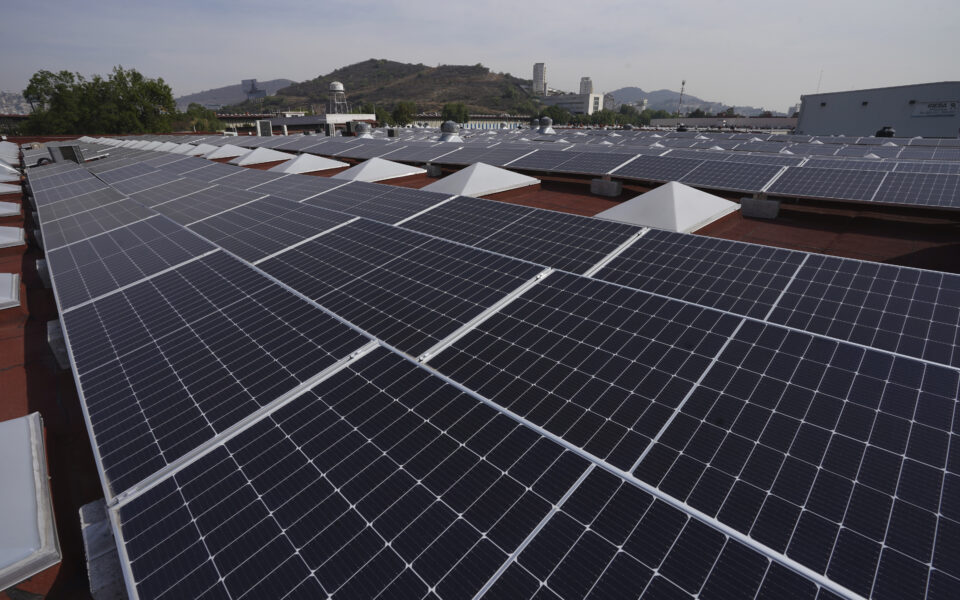Aiming for solar panels on every rooftop

In its effort to quickly wean Europe off Russian gas and fossil fuels, the European Commission has presented its proposal for a dedicated solar energy strategy, which basically seeks to transform homes, shops and businesses into energy-efficient buildings and their occupants into electricity producers, promising a drastic reduction in prices.
According to the Commission’s REPowerEU Action Plan, renewables are at the heart of Europe’s energy security and photovoltaics on roofs are the vehicle for achieving revised targets, with the Commission proposing that they be made mandatory for new public and commercial buildings over 250 sq.m. by 2026 and respectively for existing ones by 2027.
With regard to houses and apartments, all new residential buildings will have to install photovoltaics by 2029.
The strategy envisages the installation of 600 GW by 2030. The Climate Law is moving in a similar direction as it provides for the mandatory installation of electricity generation systems from photovoltaic or thermal solar systems at a rate corresponding to at least 30% of the coverage. This will apply for the new building permits that will be submitted from the beginning of 2023 for buildings covering more than 500 sq.m. – excluding tourist accommodation and churches.
By making it mandatory to install photovoltaics on rooftops, the European Commission is paving the way for large-scale investments. For this reason, member-states are now called upon to design solid support frameworks using available EU funding, in particular the new funds of REPowerEU and the Recovery Plan.
Experts in the field have told Kathimerini that the installation of photovoltaics on rooftops in Greece will proceed with the model of virtual net-metering. Home consumers and businesses will become energy producers from roof photovoltaics without installing them themselves or even knowing where they are.
They will simply be able to buy them at a predetermined price through bilateral contracts with companies that will have sublet rooftops to install and operate photovoltaics. Such models are already implemented by countries such as the Netherlands, France and Spain.





